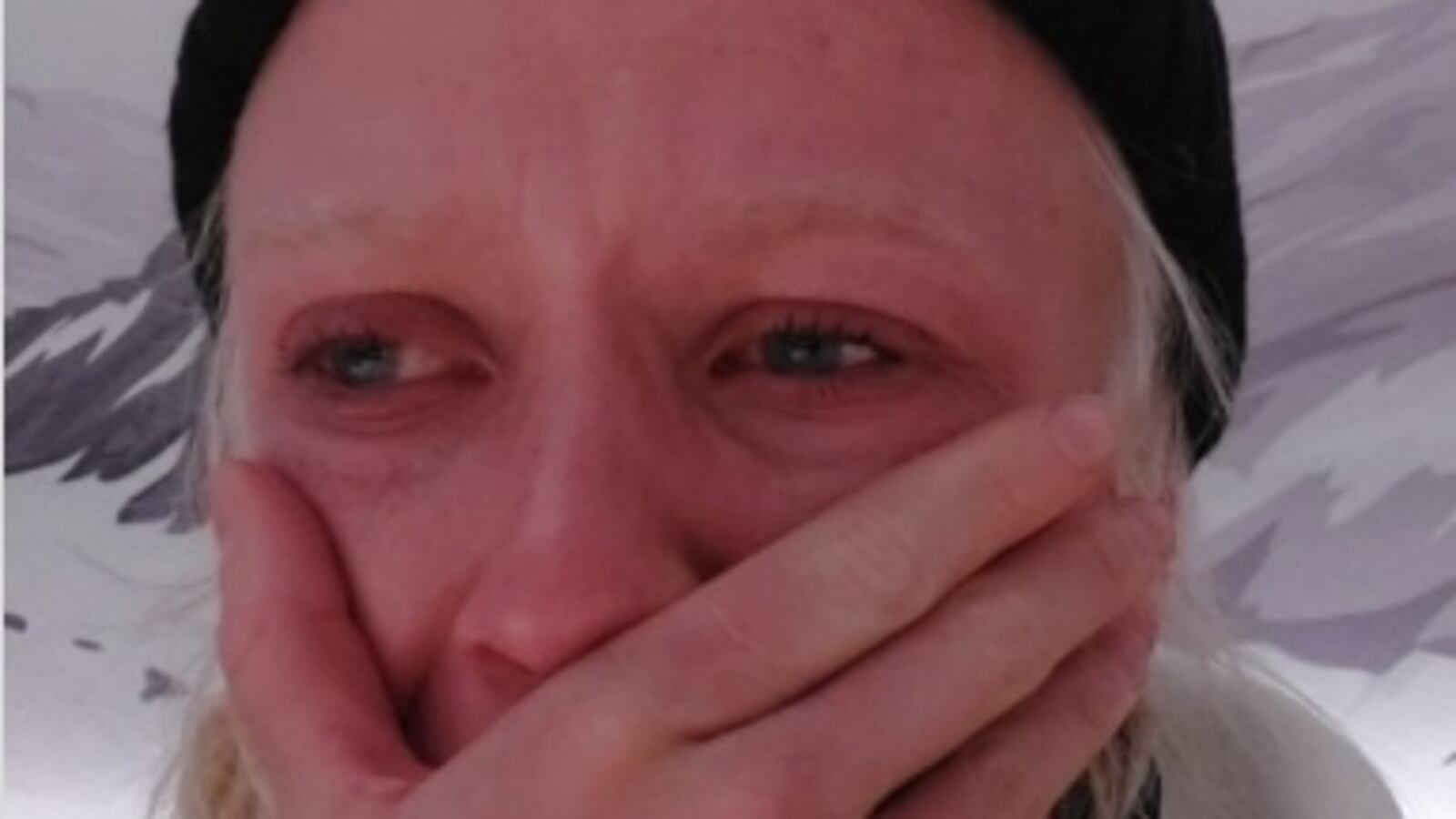It was meant to be all about the athletes, but competitors caught up in China’s strict zero-COVID policy say they are enduring an Olympics from hell.
Four days into full competition at the Beijing Winter Games and complaints are piling up about athletes kept locked up in cockroach-infested isolation hotels, badly fed, and starved of information.
A Polish short-track speed skater said she was left “crying like crazy” in the back of an ambulance in the early hours Saturday after being told she was being released from isolation—only to be sent back into detention before her event began.
“I was sitting in the ambulance. It was 3 a.m. I was crying like crazy because I didn’t know what was going on. I did not feel safe at all,” Natalia Maliszewska said. “I cry until I have no more tears.”
She was far from the only one in tears at Beijing’s “Crying Games.” The Russian biathlete Valeria Vasnetsova complained last week about the grim conditions in her isolation hotel, where breakfast, lunch, and dinner for five days had been a tray of plain pasta with orange sauce, a piece of meat, and a few potatoes.
“My stomach hurts, I’m very pale and I have huge black circles around my eyes. I want all this to end. I cry every day. I’m very tired,” the Russian said in a post on Instagram. Her account has since been deleted.
Also in tears was the Belgian Kim Meylemans, who tested positive on her arrival in Beijing but assumed she would be allowed to join her teammates in the Olympic village after a series of negative test results three days later.
She too was taken from isolation in an ambulance, only for the vehicle to drive past the village and take her to another isolation unit. The skeleton racer described her ordeal in a teary Instagram post that helped persuade Olympic organizers to allow her into the athletes' village, although she remains in quarantine.
So far there have been more than 350 positive tests among the various Olympic visitors, including journalists forced to cover the sport over dodgy Wi-Fi connections in their isolation hotels until they can provide two negative PCR results 24 hours apart. They include the veteran Australian reporter Julian Linden, who has spent almost a week at a remote isolation hotel in the mountains north of Beijing, suffering no COVID symptoms but waiting for the green light to get on with his job.
Linden described in the Sydney Daily Telegraph how he’d almost been bombed at the Atlanta Olympics in 1996 and almost mugged in Rio in 2016, but nothing could have prepared him for Beijing 2022. “The only humans I’ve seen are the two Chinese health workers who turn up at my room each day to swab my throat. Dressed in full hazmat suits and unable to speak English, they don’t say much but are friendly and helpful, even agreeing to my request for a selfie.’”
Having journalists locked away is not great news for the International Olympic Committee, but athletes bursting into tears on their social media feeds is a far greater problem for the supposed guardians of world sport.
Kit McConnell, the IOC’s sports director, said today the organization was treating the problem of athlete isolation as a top priority and doing their best to help individuals caught up in it. “The athletes in isolation remain an absolute focus. There is a collective responsibility to support these athletes,” he told a news briefing. “That’s not easy for anyone in that situation. We absolutely understand. There are still some individual circumstances which are challenging.”
Maliszewska, the Polish speed skater, said that after being released from isolation and then detained again, she no longer trusted the testing regime to get it right. “I don’t believe all those tests now,” she told Reuters. “I want explanations from the people who made me feel not safe, because nobody is saying anything now. They’re silent.”






